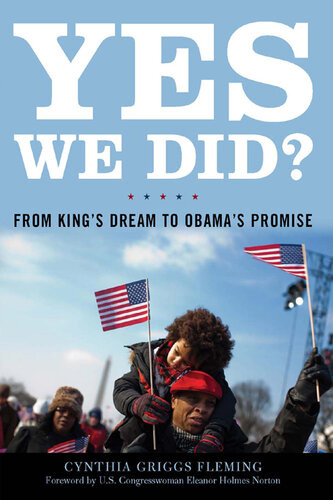

Most ebook files are in PDF format, so you can easily read them using various software such as Foxit Reader or directly on the Google Chrome browser.
Some ebook files are released by publishers in other formats such as .awz, .mobi, .epub, .fb2, etc. You may need to install specific software to read these formats on mobile/PC, such as Calibre.
Please read the tutorial at this link: https://ebookbell.com/faq
We offer FREE conversion to the popular formats you request; however, this may take some time. Therefore, right after payment, please email us, and we will try to provide the service as quickly as possible.
For some exceptional file formats or broken links (if any), please refrain from opening any disputes. Instead, email us first, and we will try to assist within a maximum of 6 hours.
EbookBell Team

4.4
72 reviewsBarack Obama's presidential victory demonstrated unprecedented racial progress on a national level. Not since the civil rights legislation of the 1960s has the United States seen such remarkable advances. During Obama's historic campaign, however, prominent African Americans voiced concern about his candidacy, demonstrating a divided agenda among black political leaders. The assassination of Martin Luther King Jr. changed perceptions about the nature of African American leadership. In Yes We Did?, Cynthia Fleming examines the expansion of black leadership from grassroots to the national arena, beginning with Booker T. Washington and W. E. B. DuBois and progressing through contemporary leaders including Harold Ford Jr., Louis Farrakhan, Jesse Jackson Jr., and Barack Obama. She emphasizes socioeconomic status, female black leadership, media influence, black conservatism, and generational conflict. Fleming had unprecedented access to a wide range of activists, including Carol Mosley Braun, Al Sharpton, and John Hope Franklin. She deftly maps the history of black leadership in America, illuminating both lingering disadvantages and obstacles that developed after the civil rights movement. Among those interviewed were community activists and scholars, as well as former freedom riders, sit-in activists, and others who were intimately involved in the civil rights struggle and close to Dr. King. Their personal accounts reflect the diverse viewpoints of the black community and offer a new understanding of the history of African American leadership, its current status, and its uncertain future.